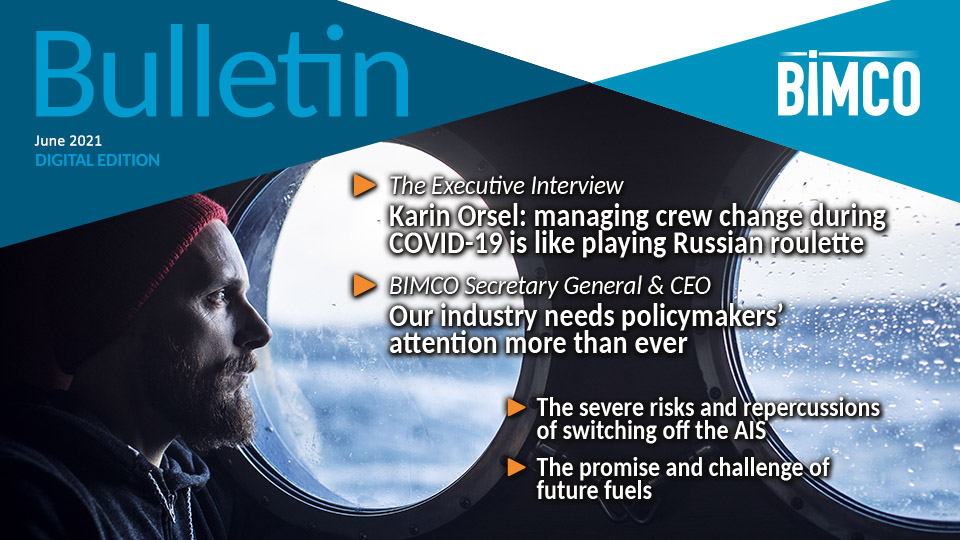US regulations affecting your ships - get the July update!
Overview
US Ballast Water Management Program – new documents released by US Coast Guard
As reported in our BIMCO news of 27 July, the US Coast Guard (USCG) released three documents summarising the requirements of the US ballast water management (BWM) regime and included details on where the US programme differs from the IMO requirements.
CSA has a quick review of the 2nd and 3rd documents which are PowerPoint presentations updated by USCG for presentations at various conferences. CSA noted that on page five of the document entitled “US Ballast Water Regulations Program update ”, the third primary bullet states “Vessels with AMS (alternative management system) will not receive new or supplemental extensions. Those vessels are expected to use the AMS.” CSA and others have problems with this decision given that a number of installed AMS systems are not performing adequately and in these cases, if this policy decision is to be practically applied, every vessel inbound for a US port with an inoperable or sub operable AMS system must, for each voyage, contact the captain of the port (COTP), advise that the system is not operable and then find themselves at the mercy of the COTP as to what contingency measure will be applied to that vessel.
New ECDIS Standards Install / Deadline Issues
On 7 June 2017, BIMCO informed members of the new “Electronic Chart Display and Information System” (ECDIS) standards, where the deadline for installation is 31 August 2017.USCG has stated that there is no requirement to re-submit an ECDIS for type-approval if a new standard is released during the period of validity, as long as the update does not fall under the provisions stated on the type-approval letter.
Regulatory reform – NOAA request for comments
As members recall, the Trump administration has issued Executive Order 13777, entitled “Enforcing the Regulatory Reform Agenda”, which, among other things, requires all executive branch agencies including USCG and the US Environmental Protection Agency (EPA), to conduct a review of existing regulations that may be appropriate for repeal, replacement, or modification.
The USCG and US EPA have already conducted their rounds asking for comments. Now the National Oceanic and Atmospheric Adminstration (NOAA) has published such a request in the July 7 2017 Federal Register. In this regard, CSA intends to submit comments with a focus on the current regulations relating to speed restrictions to minimise ship strikes of whales off the US East Coast. It is anticipated that CSA comments will urge NOAA to overturn the current regulations - which are based on seasonal management areas (where whales were last year)- and refocus the speed restriction requirements on dynamic management areas (where whales are in real time). CSA will also suggest that the relationship between speed restrictions and whale strikes (versus fatal whale strikes) have been misinterpreted and applied as the basis of the current regulations.
Customs Trade Partnership Against Terrorism (C-TPAT) re-authorisation
BIMCO members who participate in the C-TPAT arrangement should be aware the scheme is being re-authorised in the US. Customs and Border Protection (CBP) work with C-TPAT applicants and participants in protecting the supply chain, identifying security gaps and implementation of certain security measures and best practices. This re-authorisation will result in further benefits for participating members such as shorter wait times and fewer inspections at ports.
McCain Jones Act Repeal Bill
Sen. John McCain (R-Arizona) has again introduced a bill (S 1561) entitled “Open America’s Waters Act of 2017” which would repeal the Merchant Marine Act of 1920, more commonly known as the Jones Act. As noted previously, CSA supports the Jones Act as it currently stands and does not support a reopening of the statute either for purposes of strengthening or weakening its current provisions. Introduction of this bill has understandably again rallied the maritime labour unions and US flag operators against this proposition. The only wild card in the equation at this time is the position of the Trump administration (pro-trade but also pro-US jobs) although it is expected that the president’s Secretary of Transportation, Elaine Chao, who is a friend of the US marine transportation industry, would not be in favour of S 1561. The bill has been referred to the Senate Commerce Committee with no further action or hearings scheduled as at the time of this reporting.
Download RELATED Documents
-
Full CSA Report for July 2017 0.3 MB
Download now
Feedback or a question about this information?
VPS Bunker Alerts
Veritas Petroleum Services (VPS) publish regular Bunker Alerts based entirely on fuel samples and have kindly permitted BIMCO’s Members to access this information.
The Bunker Alerts are not intended to be an evaluation of overall bunker quality in the port or area concerned, but usually highlight a specific parameter within the fuel which has raised a quality issue.
Latest ice reports for members
Latest piracy reports
Latest industry releasable threats
ELSEWHERE ON BIMCO
Contracts & Clauses
All of BIMCO's most widely used contracts and clauses as well as advice on managing charters and business partners.
Learn about your cargo
For general guidance and information on cargo-related queries.
BIMCO Publications
Want to buy or download a BIMCO publication? Use the link to get access to the ballast water management guide, the ship master’s security manual and many other publications.
About a new business partner
We can help members check new business partners. We also help to recover millions of USD (undisputed) funds every year.




